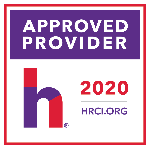Predictive scheduling is when an employer provides an employee with their schedule in advance. For employee schedules that frequently fluctuate, part-time employees who do not work full workweeks, or anyone who works for an hourly rate, predictive scheduling can help establish a predictable schedule and help employees better estimate their expected pay for a weekly or monthly period.
Predictive scheduling is largely a response to the challenges associated with on-call scheduling, a workforce management method that availed hourly workers when needed in order to accommodate influxes of customers at irregular times. On-call scheduling offered business owners flexibility, but at the expense of predictable employee schedules.
In the past few years, predictive scheduling laws and regulations have become more common, especially in industries where part-time jobs and minimum wage positions are prominent. Working to develop a seamless and easy predictive scheduling policy can result in happier employees, reduced turnover costs, and a more efficient workflow that still meets the fluctuating needs of your business. Predictive scheduling isn't going away, but it doesn't have to be a challenge; in fact, it could be a great opportunity.
Over the past five years, the United States has seen a wave of new laws aimed at providing employees with more predictable work schedules. These predictive scheduling laws are meant to provide stability to individuals so they can attend to their child care, health, education, and, in many cases, second jobs. While these laws are well-intentioned, they do present significant challenges for employers in terms of staffing, cost, document retention, and general compliance.
Areas Covered
What is ‘predictive scheduling’?
General requirements of predictive scheduling laws
Which states have adopted predictive scheduling laws?
What employers should be doing to ensure compliance
Ramifications of non-compliance
Course Level - Intermediate
Why Should You Attend
Predictive scheduling laws are sweeping across the country, presenting a challenge for employers in the retail, hospitality, and food service industries where flexible scheduling can be critical to successful operations. It can be difficult to stay abreast of advance notice rules, varying pay rules, and specific rest rules. It could be just a matter of time before this legislation is passed in a municipality or state where your organization does business.
Participation in this webinar will assist you in updating your workforce scheduling practices now to avoid potential compliance issues later.
Who Should Attend
Senior Leadership
Owners of restaurants and other retail establishments
Human Resources Professionals
Compensation Professionals
Operations Professionals
Recruiting Professionals
Compliance Professionals
Managers & Supervisors
You may ask your Question directly to our expert during the Q&A session.
** You can buy On-Demand and view it at your convenience.

Diane L. Dee
Diane L. Dee, President of Advantage HR Consulting, LLC has over 25 years of experience in the Human Resources arena. Diane’s background includes experience in Human Resources consulting and administration in corporate, government, consulting and pro bono environments. Diane founded Advantage HR Consulting, LLC in early 2016.
Under Diane’s leadership, Advantage HR provides comprehensive, cost-effective Human Resources solutions for small to mid-sized firms in the greater Chicagoland area. Additionally, Diane conducts webinars on a wide-variety of HR topics for various compliance training firms across the country.
Diane is a member of the National Association of Women Business Owners and the Society for Human Resource Management. Additionally, Diane performs pro bono work through the Taproot Foundation assisting non-profit clients by integrating their Human Resources goals with their corporate strategies.
Diane holds a Master Certificate in Human Resources from Cornell University’s School of Industrial and Labor Relations and has attained SPHR, SHRM-SCP, sHRBP and HRPM® certification.

This webinar has been approved for 1 HR (General) recertification credit hours toward California, GPHR, HRBP, HRMP, PHR, and SPHR recertification through the HR Certification Institute. The use of this seal is not an endorsement by the HR Certification Institute of the quality of the activity. It means that this activity has met the HR Certification Institute’s criteria to be pre-approved for recertification credit.
.jpg)
Edupliance is recognized by SHRM to offer Professional Development Credits (PDCs) for the SHRM-CPSM or SHRM-SCPSM. This program is valid for 1 PDC for the SHRM-CPSM or SHRM-SCPSM. For more information about certification or recertification, please visit www.shrmcertification.org.